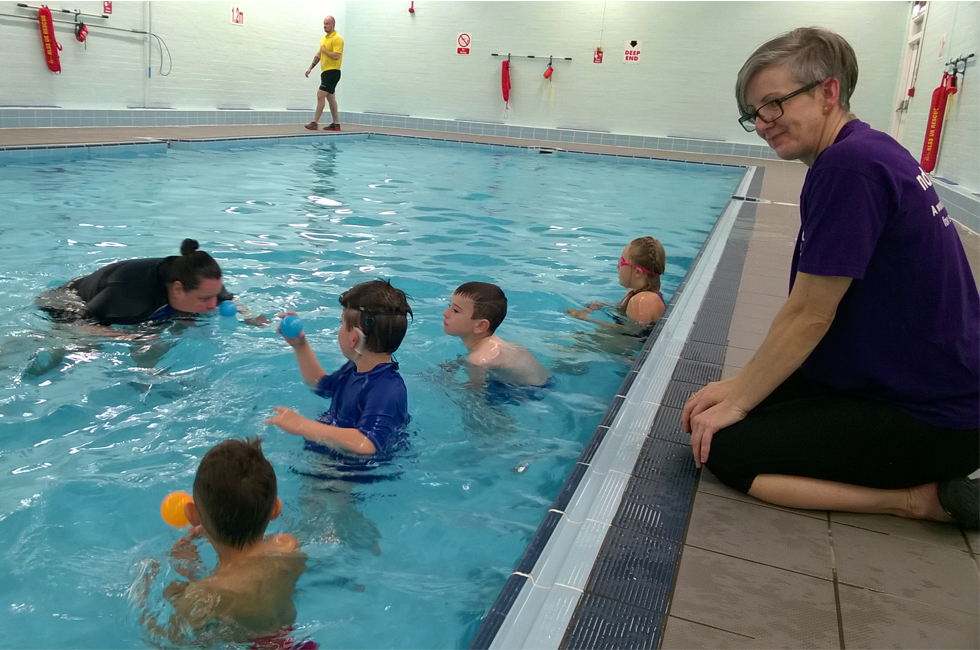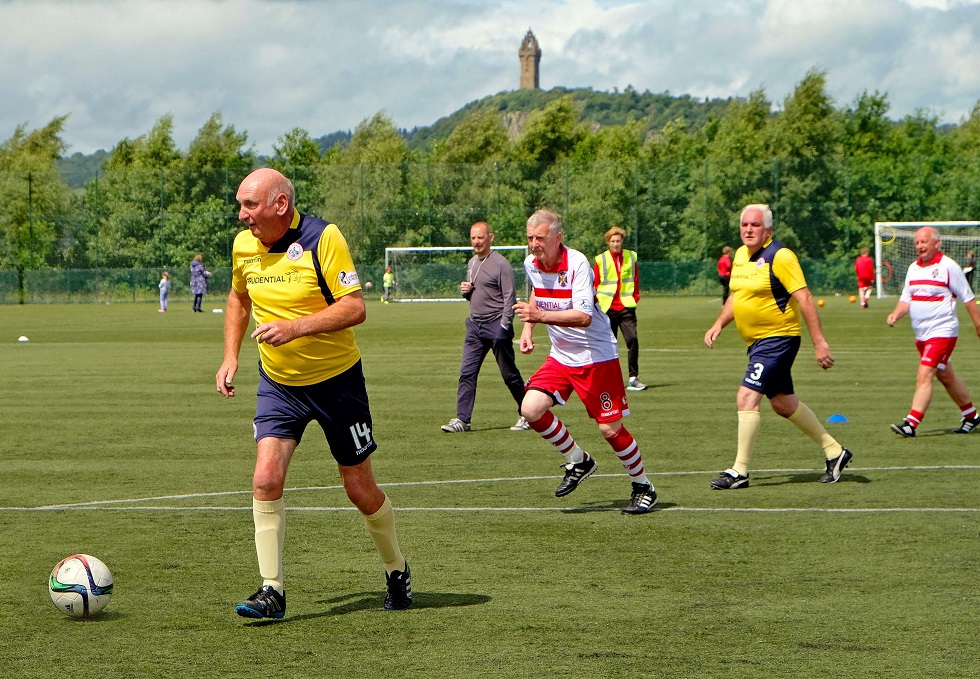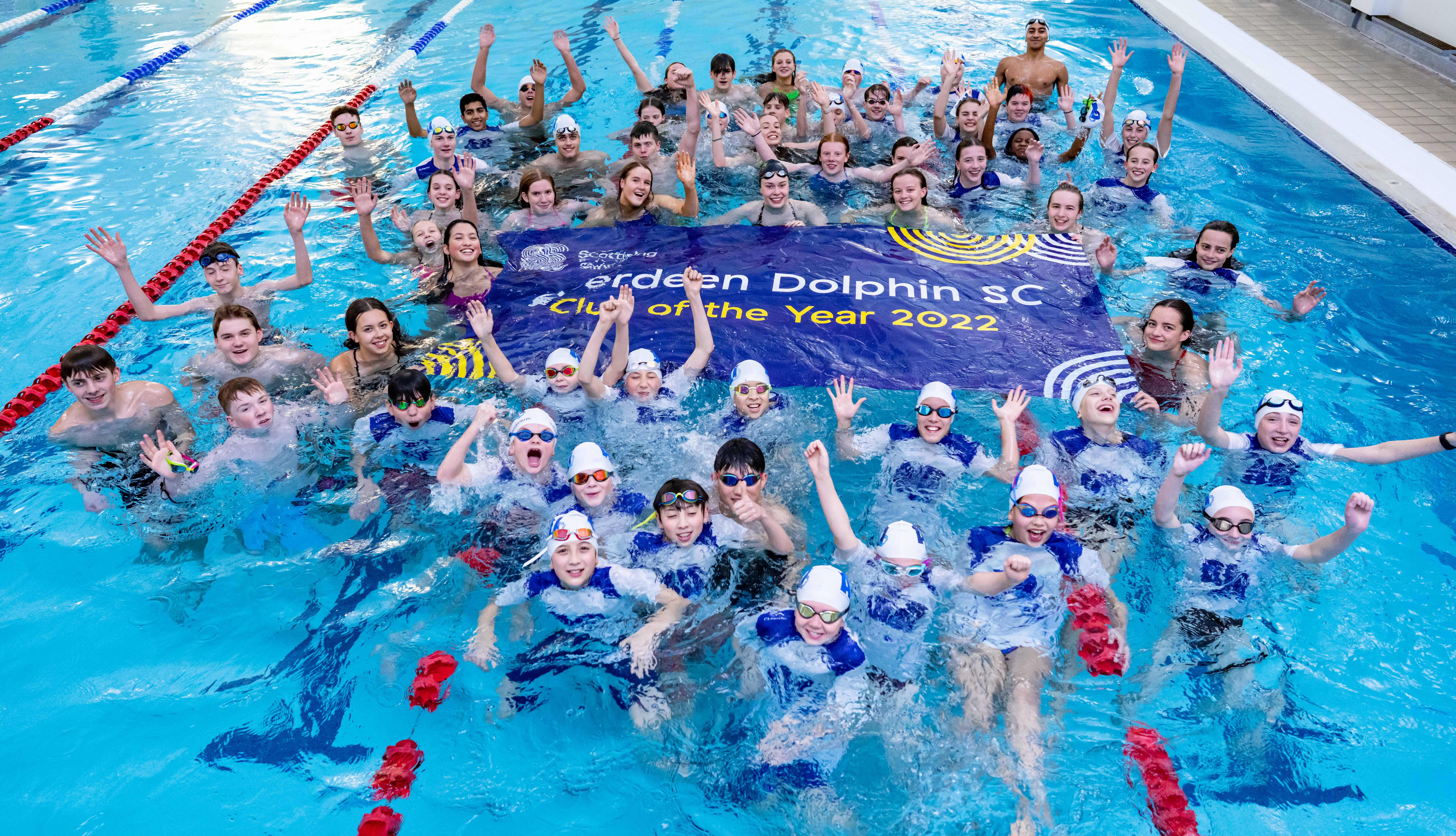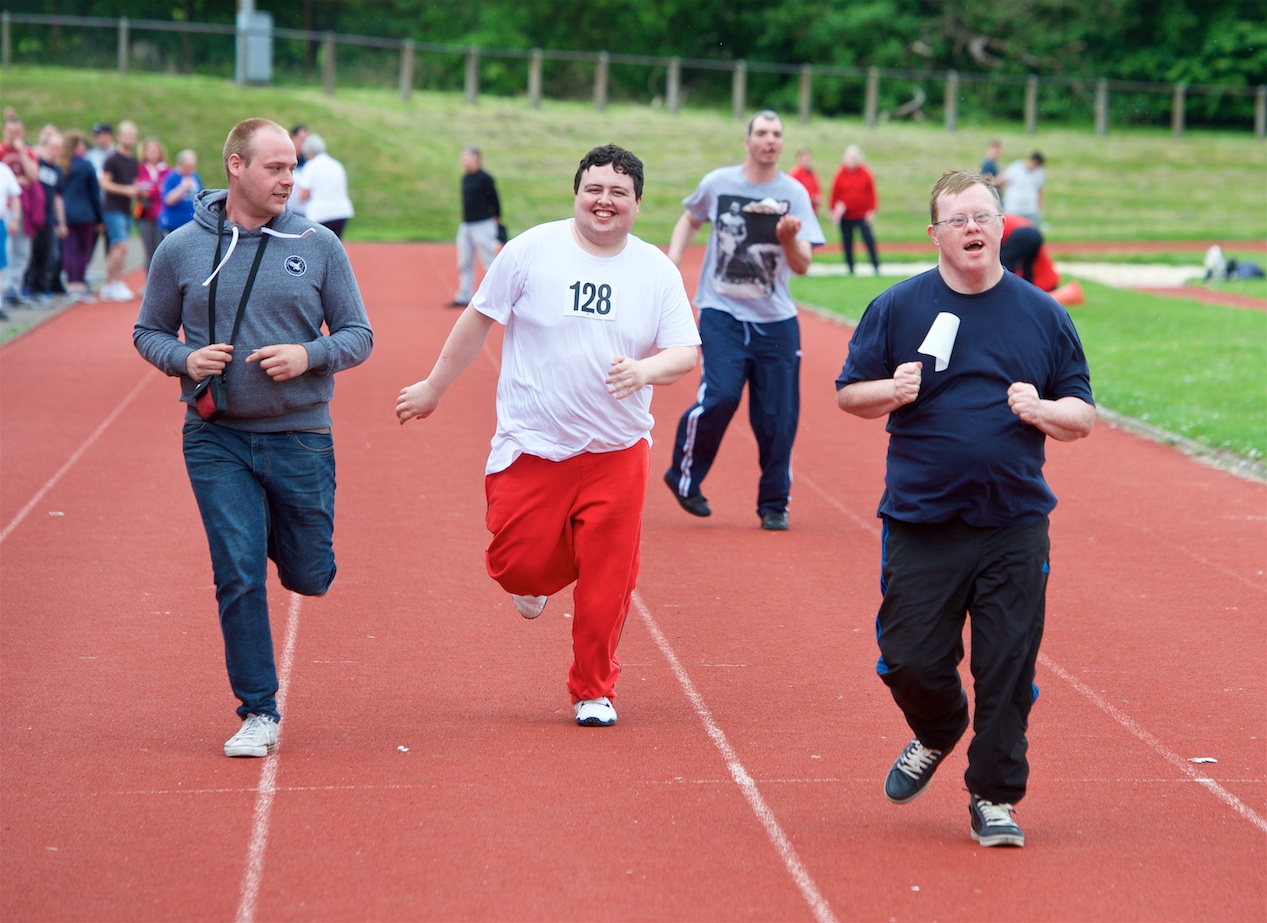Young deaf swimmers in Scotland will continue to enjoy the benefits of the Deaf-Friendly Swimming project for a further two years, thanks to National Lottery funding through the Big Lottery's Young Start scheme.
The project, managed by the National Deaf Children’s Society and underpinned by strong partnerships with organisations including Scottish Swimming and Scottish Disability Sport, aims to support deaf young people and their families, helping them to access aquatics. Deaf young people and their families will be able to take part in swimming lessons, come try days, family events and pool parties, and access a coach bursary scheme. Swimming teachers will be able to attend workshops, complete online courses and make use of resources and a toolkit to help make their lessons inclusive.
The project was launched in October 2017 at Tollcross International Swimming Centre in Glasgow, with local Deaflympic medal winners Shiona McClafferty and Jack McComish in attendance, as well as John Mason MSP. Eleven deaf young people engaged in a consultation about what is important to them, had the chance to enjoy some pool time and tested the latest technology on board the charity’s roadshow bus.
Eleanor Connelly, Swimming Development Officer at the NDCS, sai:d “It was fantastic to launch the deaf-friendly swimming project in Glasgow with some inspirational deaf athletes. They really proved to everyone there that deaf children can do anything their hearing peers can, when given the right support. What a way to launch the next two years of a project that will help to support so many of Scotland’s deaf young people.”
Sport First went to find out more about this successful programme and the impact it has made.
Swimming without barriers
Swimming is one of the most attractive sports to deaf young people, according to research by the National Deaf Children’s Society; deaf young people say they would like to participate in more sport, but poor deaf awareness and practical support by mainstream providers excludes them, often leading them to becoming disengaged with new sports and fearful of trying new activities.
These exclusions increase deaf young people’s social isolation, and they are 4 times more likely to experience mental health challenges than other young people as a result. Communication difficulties are a major barrier in Scotland. 96% of parents and 100% of deaf young people aged 13-24 think coaches should have deaf awareness training.
Swimming provides a number of challenges to a deaf person; the distance between a swimmer and a coach on the poolside can make communication difficult as well as the noise levels, acoustics and the reliance on verbal information in the pool.
One-to-one lessons can be expensive and coaches may not feel confident to include deaf children in mainstream lessons without specific training. Hearing aids and cochlear implants have to be removed before entering the water and although waterproof aids are available, they are unfortunately often subject to an audiology postcode lottery and are very expensive to buy privately.
Since the programme launched in July 2014, over 1200 swimming teachers and coaches have undergone deaf-awareness training online and more than 450 swimming professionals have attended face-to-face training in deaf-awareness and BSL.
Deaf-friendly swimming lessons have launched in 14 locations across the UK, giving deaf young people the opportunity to learn to swim in an environment that is right for them, and meet other deaf children at the same. More than 130 deaf young people have taken part in deaf-friendly swimming events throughout Scotland, the young people had fun, learnt new skills, met friends, and increased their confidence and wellbeing.
They also had the chance to meet deaf swimming role models and to swim competitively. Alongside these events and opportunities, NDCS provides training, workshops, advice, support, expertise and resources such as waterproof BSL picture cards, BSL videos, information booklets and factsheets for swimming teachers, coaches and parents of deaf children.
Eleanor Connelly said, “Many deaf young people are being denied the opportunity to swim because many swimming providers don’t know how to meet their needs. Being able to swim is not only a life-saving skill, great fun and fantastic for building confidence, it also opens up a whole world of water-based activities such as scuba diving, rowing, surfing and sailing.
"Our resources and workshops teach instructors that by making small and simple changes to swimming activities, such as using visual aids, swimming teachers and coaches can ensure that deaf young people have the same access to swimming as their hearing peers.”
Lauren’s story
In May 2016, NDCS held a residential course to empower 16 deaf young people aged between 16 and 25 to become qualified assistant swimming teachers. Watching their progress on social media was Lauren, a profoundly deaf swimming enthusiast from Forres, Moray.
She applied to NDCS for the bursary which allowed her to complete her UKCC Level 1 Teaching Aquatics certificate with Scottish Swimming. Scottish Disability Sport and Scottish Swimming worked together to provide what Lauren needed to complete her course, including a palantypist via Skype who could listen to the tutor during her theory sessions and provide real time captions to ensure she didn’t miss anything.
Shadowing other teachers improved her skills and confidence and Lauren has gone on to complete her Pool Lifeguard qualification and is enjoying working as a swimming teacher for Aberdeen Sport Village and reaping the rewards of seeing the children improve and achieve. Lauren has also now completed her Level 2 training and has just a couple of theory units left to complete to gain her Level 2 qualification. The course was funded by a further NDCS bursary and she is working towards her qualification in Applied Sport and Exercise at Robert Gordon University in Aberdeen.
 Lauren said: “In the swimming pool communication was a big barrier. Without an aid in the pool, everything is silent.
Lauren said: “In the swimming pool communication was a big barrier. Without an aid in the pool, everything is silent.
"The teacher would walk up and down and I couldn’t understand what was being said, I don’t want other children going through what I went through.
"I want to make a difference by giving them someone who will be able to communicate with them.”
Lauren is one of four deaf young people in Scotland to benefit from the NDCS swimming bursary, with more to come in 2018/19. This programme has opened the door to a lifetime of enjoyment in swimming and a possible career path.
Supportive partnerships
After first receiving funding for a swimming project from Big Lottery / Young Start in 2014 The National Deaf Children’s Society recruited a Swimming Development Officer to coordinate and deliver the Deaf-Friendly Swimming Project in Scotland.
Eleanor Connelly has worked hard since funding was approved for this project to ensure the programme's aims, objectives and key targets are met. She formed the Scottish steering group, comprising Scottish Swimming and Scottish Disability Sport as well as linking to national leads GB Deaf Swimming and UK Deaf Sport, and providing regional engagement opportunities for local swimming providers.
The programme provides training for hearing teachers, coaches and swimming providers to deliver sustainable swimming provision inclusive of deaf young people along with additional competitive opportunities to link grassroots participation to existing pathways for competitive deaf swimmers. Scottish Swimming is integral to the partnership in their promotion of the workshops to teachers and coaches across the country and along with SDS provide support for the deaf young people achieving teaching qualifications through the NDCS coach bursary scheme. This includes access to communication support, such as notetakers and interpreters.
Find out more
The National Deaf Children’s Society (NDCS) is the leading charity dedicated to creating a world without barriers for deaf children and young people.
The Deaf-Friendly Swimming Project was established in Scotland in February 2015 to break down barriers faced by deaf children and young people in swimming and aquatic activities. The project was crowned the nation’s best sporting project in the 2016 National Lottery Awards, beating off stiff competition from over 600 other sport projects.
The project is about to move into a new phase of its roll-out, which will support deaf young people access aquatics in more rural and remote parts of Scotland delivering family events and training sessions for coaches, from Orkney to Argyll & Bute as well as maintaining current partnerships in urban areas. The project will empower deaf young people to achieve coaching qualifications, to inspire their peers and future generations. It will cover all aquatic disciplines, including swimming, water polo, diving, surfing and open water.
You can find more information about Deaf-Friendly swimming near you by going to the NDCS website.




